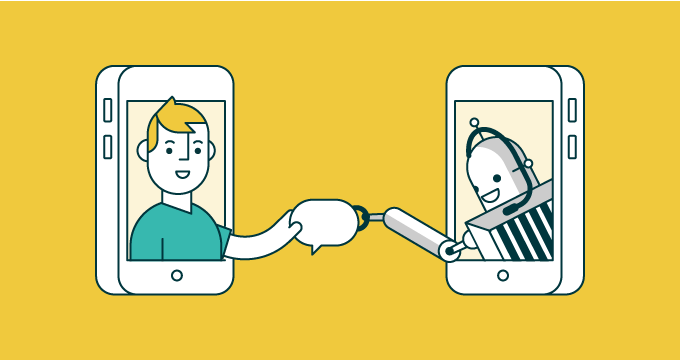These days, chatbots are automating customer service around the world. Bots are on the customer service front lines more often than before. These bots vary from simple scripted bots answering FAQs to AI-backed bots programmed to make product recommendations. Even so, the humans engineering these bots and writing their scripts are the ones who hold the keys to customer service. Here are three things to help understand bot abilities and their limitations.
Humanlike AI is a world away
When AI first came out in the mid 1950s, the computer science community had high hopes for its evolution. AI was initially projected to beat a human chess player in a decade, yet it still took over forty years for true victory. Humanlike AI is thankfully still a world away.
Chatbots can process and respond to natural language using different types of AI. However, the data needed to train these bots to reply in a way that is human-like is still a few years out of reach. Three of the biggest tech companies, Google, Facebook and Apple, have access to most of this data and are still working to close this gap.
Because of this, marketers need to search for other ways to make bots feel more human. A clear and simple solution for this is to have agents ready to pick up the interaction after the AI reaches its limit.
Bots can handle data, but not decisions
Economist say that robots are best suited for jobs that are dirty, dull, dangerous and now also data-based. Dull data-based tasks comprise only a fraction of a customer representative’s role, so they won’t be replaced by bots any time soon.
However, chatbots can sub in for human agents’ data-driven tasks, such as tracking packages, answering FAQs and issuing tickets. But when the tasks get too complicated, bots need to be programmed with the ability to smoothly transfer the interaction to a human agent, delivering all the necessary context. This allows agents to use their time more efficiently on the things that matter most, like building trust and solving problems.
Bots don’t have empathy
Simply put, bots don’t care. Even though AI developers work towards reading human emotions through facial expression and verbal analysis, they can’t program an AI to feel human emotion. Humans on the other hand have problems every day, so it’s easy to feel empathy towards others and relate to their problems.
Empathy is an essential human quality that cannot be programmed. Customer service organizations prefer agents who over-index on empathy. These same agents are better at building trust, which is another major weakness of AI.
Studies have shown that people don’t trust AI because of its inability to feel human emotions. Bots may be on the front lines of customer service, but they will never replace humans, who are the heart and soul of customer service now, and in the future.
Source: Zendesk
Zendesk Partner in Thailand
092-262-6390
097-008-6314 (Sales)
support@dmit.co.th
Official LINE







